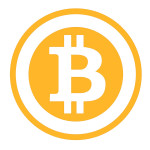AB 1326 (Dababneh) as amended 7.6.15
Adds Financial Code 26000 licensing for virtual currency
Creates requirements for persons engaged in any virtual currency business to either obtain a license or qualify for an exemption from licensure to operate in California. Under AB 1326 “‘virtual currency business’ means maintaining full custody or control of virtual currency in this state on behalf of others.”
Virtual currency businesses would be required to pay a $5000 application fee, complete the application form, maintain a trust account/bond to benefit consumers, provide a specified receipt to consumers, submit to examinations. Violations are subject to civil penalties.
Additionally, a virtual currency business in good standing may be eligible to convert their virtual currency business license to a money transmission license under the Money Transmission Act provided meeting certain criteria, which includes “conducting [a] virtual currency business with less than $1,000,000 in outstanding obligations and whose business model, as determined by the commissioner, represents low or no risk to consumers to register with a $500 license fee and, if approved, receive a provisional license to conduct virtual currency business.”
The bill also provides for a provisional license for virtual currency businesses “with less than one million dollars ($1,000,000) in outstanding obligations and whose business model, as determined by the commissioner, represents low or no risk to consumers may register with a five-hundred-dollar ($500) license fee with the commissioner” They must register with FinCEN as a money services business, if applicable.
Finder’s Fee for Pilot Program for Increased Access to Responsible Small Dollar Loans
SB 235 (Block)
Would increase compensation to finders (entities that bring borrowers and licensed lenders together) from $45/40 to “no more than $70” per loan
The bill would also “require a licensee to provide the commissioner with prescribed information relating to each finder, including, but not limited to, the finder’s delinquency rate and default rate, and would authorize the commissioner to take prescribed action against a finder that is found to be in violation, including, but not limited to, disqualifying the finder from providing services under the pilot program.”
Creates Bank on California under DBO
AB 1292 (Dababneh)
Various changes to Data Breach Notification Laws
SB 570; AB 83; AB 259; AB 964

